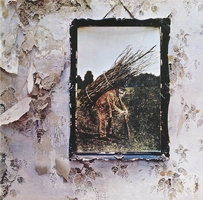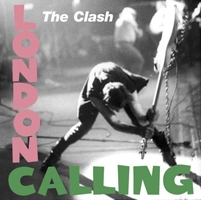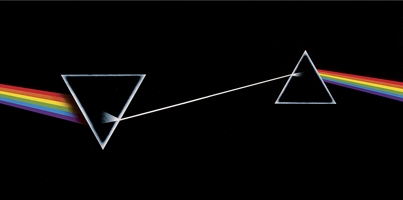The Top 50 Albums of All Time Page 2

6: The Beatles: Sgt. Pepper's Lonely Hearts Club Band (Capitol)
This is the point where rock's attention span grew from singles to albums. It was pop music's psychic pinnacle in the year 1967, allowing the Beatles to step away from their confining identity as the Fab Four and cloak themselves in the adventurous guise of "Sgt. Pepper's band." With unparalleled resourcefulness, producer George Martin and the group captured these intricate songs - including Lennon and McCartney's magnum opus, "A Day in the Life" - on nothing more than 4-track recorders. (As John noted, the album is best heard in its original mono mix.) On songs like "Lucy in the Sky with Diamonds" and "Within You Without You," Sgt. Pepper unlocked doors and inspired trips of all kinds. Noting the album's vast reach, Langdon Winner sagely wrote: "For a brief moment, the irreparably fragmented consciousness of the West was united, at least in the minds of the young." -- ARKE PUTERBAUGH

7: The Who: Who's Next (MCA)
Guitarist/songwriter/guiding light Pete Townshend had the good sense to abandon an unwieldy project, Lifehouse, and salvage its strongest songs for 1971's succinct, single-disc Who's Next. The result was the band's most unassailably strong statement. Along with Led Zeppelin II, this was the template for '70s hard rock: sinewy, loud, and bottomless. It offered gleaming new sounds, like Townshend's burbling synthesizers on "Baba O'Riley" and "Won't Get Fooled Again," as well as his terse, slicing guitars. The busy rhythm section of bassist John Entwistle and drummer Keith Moon colored the spaces with rumbling thunder and roiling energy. This was also singer Roger Daltrey's finest hour, as he tore into these tunes with gravel-throated ferocity, culminating in rock's greatest scream. That, of course, comes near the end of "Won't Get Fooled Again," right before he sings, "Meet the new boss / Same as the old boss," an anti-authoritarian adage for the ages. - PARKE PUTERBAUGH

8: Derek and the Dominos: Layla and Other Assorted Love Songs (Polydor)
We all have our own Laylas to bear. Lord knows I spent countless hours with my feverish head between a pair of speakers as yearning 1970 songs like "I Am Yours" and "Why Does Love Got to Be So Sad" both fueled and soothed my ache for another man's woman. Eric Clapton has always used his guitar to speak for him more than words ever could, and his inarticulate speech of the heart has never been as compelling or as relatable, propelled by his ax-wielding foil, Duane Allman. Keyboardist Bobby Whitlock almost broke Layla's spell by telling me that my favorite track - the album's closer, the somber acoustic lament "Thorn Tree in the Garden" - was actually about his dog. But the song's universal anguish connects it to any and all listeners, no matter the source. Layla, you've got me. For life. - MIKE METTLER

9: Led Zeppelin: Led Zeppelin IV (Atlantic)
Back in early 1971, in the wake of Led Zeppelin III, "Since I've Been Loving You" was the track that my friends and I, paying dues in our high-school band, revered as The Big Zep Epic - until that November. I was the first of us to buy Zeppelin's fourth album, and I distinctly recall saying to the others: "We can forget about 'Since.' Wait 'til you hear The New Zep Epic." Yes, back then, "Stairway to Heaven" glittered like gold, and in 8 minutes it seemed to encompass everything that was good about rock & roll. It's not Led Zeppelin's fault that "Stairway" would become a radio retread. There's nothing wrong with the song itself. May I advise a fresh hearing while doing nothing but sitting in a chair? And if you want even more that's good about rock & roll, there is, of course, "Rock and Roll." And "Black Dog." And "When the Levee Breaks." Not to mention every other flawless track in between, plus Sandy Denny, state-of-the-art production, immaculate musicianship, and Guitar to Die For. So, listen to the entire album anew. I just did - and still, it makes me wonder. - KEN RICHARDSON

10: The Velvet Underground: The Velvet Underground & Nico Verve (Polydor)
The cliché is that this didn't sell a lot of copies but that everybody who bought one went on to form a band. There's a grain of truth in that, but the album hit all sorts of people who never played an instrument (for a few months after it came out in 1967, it was the only record I heard echoing from dorm rooms at my old school), and the reason isn't particularly mysterious: On first listen, it's one scary record. Between John Cale's viola drones, Nico's Teutonic tunelessness, and Lou Reed's stories of smack and sadomasochism, the album simply reeked of Les Fleurs du mal, as one reviewer quoted in the liner notes observed. Once you got past that, you realized that poppier moments like "Sunday Morning" and "I'll Be Your Mirror" were beautifully observed vignettes about somebody's real life, told with compassion and heart to burn. At which point, of course, you were a goner. - STEVE SIMELS

11: Elvis Costello: This Year's Model (Columbia; Hip-O)
As an unabashed Deadhead/prog-rocker, I wasn't looking for any rock & roll saviors during the golden musical age of the '70s. I was vaguely aware when punk reared its ugly head, but not until it became a more palatable New Wave did I see beyond my need for musical complexity - and This Year's Model spearheaded the transition for me. That year was 1978, when Elvis Costello, the Attractions, and Nick Lowe gave a lesson in the power of spare instrumentation and production, with 2- to 3-minute songs that made you want to jump up and down despite the relatively minor role played by guitar. Even without "(I Don't Want to Go to) Chelsea" (for which I coveted my roommate's import LP version), it was sparkling entertainment from start to finish - perfect pop with a dash of "bite the hand that feeds me" anger, and smart, cynical lyrics throughout. - ANDREW NASH

12: The Clash: London Calling (Epic)
Arriving at the tail end of 1979, London Calling crackled with punkish energy while pointing the way toward the more exploratory directions that New Wave would take in the '80s. The Clash had plenty to offer on this double album, spreading its stylistic wings beyond the loud-fast punk-rock norm to encompass Sun-era rockabilly ("Brand New Cadillac"), horn-filled ska ("Rudie Can't Fail"), march-tempo combat rock ("Clampdown"), and sweetly soulful garage rock ("Train in Vain," which broke the band in America). The title track issued a choose-your-side call to arms, and its future-shock music - powered by Paul Simonon's apocalyptic bass line - echoed Jefferson Airplane's starkly anthemic "Crown of Creation." Throughout London Calling, the guitar-wielding, justice-minded brain trust of Joe Strummer and Mick Jones proved that punk-rockers could inhabit new musical territory without sacrificing their underlying feistiness, nor their convictions. - PARKE PUTERBAUGH

13: Nirvana: Nevermind (DGC)
Scene 1: September 18, 1991, in a New York City record-label publicist's office. "Listen to this. It comes out next week." Advance tape from a different record label goes into the cassette player. The first three chords of "Smells Like Teen Spirit" come forth. I shiver. Instant paradigm shift. Scene 2: September 24, 1991, release day. I cue up the Nevermind CD. Ahhhh. The world spins. Producer Butch Vig has triggered the revolution by doubling melody-maker Kurt Cobain's vocals and guitar lines, giving the dissonant punk seeds at the heart of "In Bloom," "Come as You Are," and "Lithium" an accessible alt-rock edge. Scene 3: September 28, 1991, at the Marquee in New York. I watch Cobain hurtle himself face first into drummer Dave Grohl's cymbals. Did he just decapitate himself, or the entire music industry, in one fell swoop? Oh well, whatever. Forevermind. - MIKE METTLER

14: Pink Floyd: Dark Side of the Moon (Harvest/Capitol)
My Sunday-morning ritual while living in rural Virginia in the early '80s: I'd drop the needle down to "On the Run," and just as the oscillated implosion signaled the track's end, I'd turn it up past 11, open my window, and scramble out the door to see how far I could get before the chiming clocks heralded "Time." Sometimes, my neighbors would poke their heads outside to see what all the fuss was about. Sometimes, my parents would yell at me to come back in and turn it down. My goal was pure: Share the pyramid of sonic wonders with everyone. I became an audio journalist to spread the gospel of great-sounding recordings, and this 1973 album remains high fidelity, first-class. - MIKE METTLER

15: The Rolling Stones: Exile on Main St. (Rolling Stones/Atlantic; Hip-O)
Long before anyone imagined MP3s, I achieved my first illegal download by taping the entirety of 1972's Exile off the radio onto a brown-labeled Ampex cassette. (The band even helped me out by placing the filler "I Just Want to See His Face" at the 45-minute tape-flip mark.) It seemed a perfect way to experience the most illicit-sounding Stones record. With its low-life lyrical references and murky, substance-soaked sonics, this double LP made it redundant for a generation of kids to do drugs; the Stones had already provided the contact buzz. And it somehow made sense that when I later heard the album on vinyl through a stereo system, I still could barely make out a word of "Rip This Joint" or "Tumbling Dice." For young suburban fans, Exile was a rite of passage. - BRETT MILANO
- Log in or register to post comments



































































